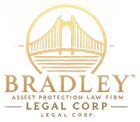When it comes to safeguarding your wealth, choosing the right asset protection attorney can mean the difference between financial security and devastating losses. Asset protection planning is a complex legal field, requiring specialized expertise to ensure compliance with federal, state, and international laws. Unfortunately, the rise in demand for these services has also led to an influx of inexperienced practitioners, making it harder than ever to separate qualified experts from those who might leave your wealth vulnerable.
In this guide, we’ll show you how to find the best asset protection lawyer, avoid costly pitfalls, common legal traps, and secure your financial future. Whether you’re a high-net-worth individual or a middle-class professional, this comprehensive article will help you make an informed decision.
Why You Need an Asset Protection Lawyer
If you have assets to protect, you are a potential target for lawsuits. Whether you’re a physician, business owner, real estate investor, or entrepreneur, a single lawsuit can jeopardize your financial stability. Even middle-class Americans are finding that a modest legal claim can wipe out years of accumulated wealth.
Asset protection planning goes beyond estate planning by focusing on shielding assets from lawsuits, creditors, and financial predators. However, implementing these strategies improperly can lead to severe consequences, such as claims of fraudulent conveyance, loss of legal protections, and even prosecution.
To avoid these pitfalls, hiring an experienced trust attorney is essential. Below, we outline key considerations and critical due diligence questions to ask when choosing the right trust lawyer for your needs.
Key Questions to Ask When Choosing an Asset Protection Lawyer
1. Are They a Licensed Attorney Offering Attorney-Client Privilege?
Work only with licensed attorneys who provide attorney-client privilege. Non-lawyer promoters or LLC mills cannot protect your communications, leaving your plans vulnerable to subpoenas. Ensure your conversations and documents remain confidential.
2. How Much Experience Do They Have in Asset Protection Law?
Experience is one of the most critical factors when selecting an asset protection attorney. Asset protection law is a specialized field, and not all attorneys are equipped to handle its complexities. It’s important to distinguish an actual asset protection lawyer from professionals in related fields who may claim expertise but lack the necessary depth of knowledge. Not all trusts are the same.
Much like the medical profession, where brain surgeons focus exclusively on the brain and orthopedic surgeons handle bones, attorneys specialize in specific areas of law. Here’s how asset protection differs from other legal fields:
• Estate Planning Attorneys: These attorneys excel at creating wills, revocable trusts, and tools to transfer wealth after death, but they generally lack expertise in proactively protecting assets from lawsuits or creditors. Estate planning and asset protection overlap but are fundamentally different in focus and execution. Estate planning law often overlooks the nuances related to third-party creditors and the strategies for deterring lawsuits. Many practitioners may not fully grasp the significance of the variations between states that recognize self-settled spendthrift provisions and those that do not. Furthermore, there is often a lack of understanding regarding the implications of establishing irrevocable trusts where an individual acts as both the trustee and the beneficiary.
• Business Law Attorneys: While business lawyers are skilled at forming corporations, drafting contracts, and navigating mergers, they typically do not have the expertise to protect assets from creditor claims or lawsuits. Asset protection requires advanced strategies like asset protection trusts (APTs) and multi-layered protections that business attorneys may not fully understand.
• Contract Law Attorneys: Lawyers who specialize in contracts may excel at drafting and negotiating agreements but are unlikely to understand the intricate legal frameworks involved in asset protection planning, such as fraudulent transfer laws or multi-jurisdictional strategies.
• Litigation Attorneys: Trial lawyers focus on defending lawsuits rather than preventing them. Asset protection is about proactively structuring your wealth to deter lawsuits before they occur, a skillset that most litigation attorneys don’t develop.
Why Specialization Matters: Asset protection lawyers are like the brain surgeons of the legal world. They need:
• Expertise in jurisdictional laws and when they do and do not apply (e.g., Nevada, Wyoming , or international jurisdictions like the Cook Islands).
• A deep understanding of fraudulent transfer laws and how to time asset transfers to avoid legal pitfalls.
• Knowledge of how to layer protective structures, such as LLCs, limited partnerships and Trusts to withstand legal challenges.
Without this focused expertise, even well-intentioned plans can fail under legal scrutiny.
3. Do They Work with Clients Like You?
Choose an attorney who has experience working with individuals or businesses in your industry or financial category. For example:
• Physicians require strategies tailored to the risks of malpractice lawsuits.
• Real Estate Investors protecting real estate is different and required special knowledge to be effective.
• Business owners may need plans that protect both personal and corporate assets.
• High-net-worth individuals need multi-jurisdictional solutions that account for tax neutrality and legacy planning.
4. Are Their Plans Tax-Neutral?
Legitimate asset protection plans should always be tax-neutral. Be wary of any attorney or promoter who promises tax savings as part of their strategy. These schemes are often fraudulent and could expose you to severe penalties.
5. Do They Provide a Written Plan with Transparent Pricing?
Reputable attorneys will provide a detailed, written plan outlining costs, strategies, and expected outcomes. Avoid firms that are vague about pricing or fail to specify what their services include.
6. How Do They Address Fraudulent Conveyance Risks?
Ask about the attorney’s approach to timing asset transfers. Asset Protection Attorney’s live through the eyes of fraudulent conveyance. Transferring assets when creditor claims are pending or reasonably anticipated will most likley invalidate your plan. The lawyer should help you implement strategies proactively to avoid fraudulent conveyance claims. For a detailed breakdown and examples of fraud and fraudulent conveyance click this link:
https://btblegal.com/blog-articles/f/understanding-fraudulent-conveyance-in-asset-protection
7. Do They Offer Ongoing Support?
Asset protection is not a one-time task. Choose an asset protection law firm that offers ongoing support, such as compliance reviews, plan updates, and educational resources. This ensures your plan remains effective as laws or circumstances change.
8. Can They Provide References or Case Studies?
Ask for references from past clients or professional colleagues who can vouch for the attorney’s expertise. While confidentiality may limit the details they can share, a trustworthy lawyer should still provide recommendations.
9. Do They Have Educational Resources?
A skilled asset protection attorney should be able to educate you about the tools and strategies they use, and that the industry uses such as domestic and offshore trusts, LLCs, LPs and exemptions. This ensures you understand how to use your plan effectively.
10. Are They Familiar with Jurisdictional Strategies?
Your attorney should know the strengths of different jurisdictions, both domestic and international. For example:
• Domestic Trusts: States like Nevada and Wyoming offer strong legal protections when used properly.
• Offshore Trusts: Jurisdictions like the Cook Islands or Belize can provide additional layers of protection.
Common Legal Pitfalls to Avoid
Improper Timing of Transfers
The timing of asset transfers is crucial. Assets must be transferred before any legal claims are anticipated. Waiting too long could lead to fraudulent conveyance claims, invalidating your plan. See my article on fraudulent conveyance.
Failure to Maintain Solvency
You must remain solvent after funding an Asset Protection Trust (APT). Courts will not uphold a plan that leaves you unable to pay reasonable debts.
Lack of Integration with Estate Planning
Asset protection strategies should align with estate planning tools like irrevocable trusts, retirement accounts, and life insurance policies. Misalignment can create inefficiencies or gaps in your financial plan.
Unethical Practices
Some attorneys and promoters may attempt to conceal assets or evade taxes, which is illegal and unethical. Always work with a reputable lawyer who adheres to the law.
Why Choose Bradley Legal Corp.?
At Bradley Legal Corp., we focus exclusively on asset protection law, helping high-net-worth and high-risk individuals protect their wealth. Our services include:
• Custom Plans: Tailored to your specific financial goals and risks.
• Nationwide Expertise: Strategies that work across jurisdictions.
• Ongoing Support: Comprehensive education, plan reviews, and compliance assistance.
With years of experience safeguarding billions of dollars in assets, we understand how to craft strategies that hold up under scrutiny and provide real protection. We have literally written the #1 Best Selling Book on the topic of Asset Protection.

Conclusion: Protect Your Financial Future
Hiring the right asset protection attorney is an investment in your financial security. By avoiding legal pitfalls and working with a qualified professional, you can create a robust plan to shield your assets from lawsuits, creditors, and other risks.
If you’re ready to take the next step, contact Bradley Legal Corp. today for a legal consultation. Let us help you build a fortress around your wealth and secure your financial legacy. Call our asset protection law firm today at (888) 773-9399 to speak with an asset protection lawyer.
By: Brian T. Bradley, Esq.




